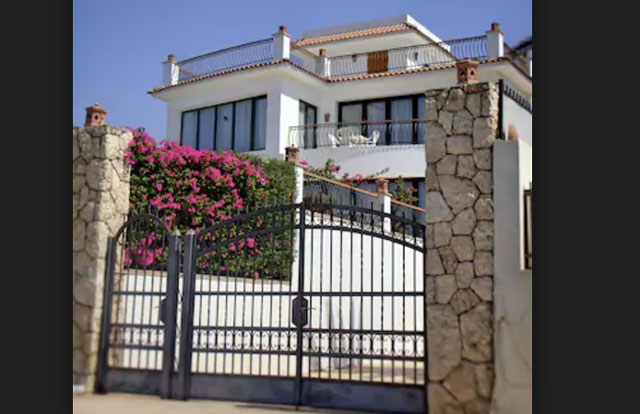
Cairo, Egypt | AFP | Guards check drivers’ papers to keep out uninvited guests from gated compounds where Egypt’s rich can escape the chaos of Cairo’s streets in a country with a widening wealth gap.
Built in the deserts around Cairo, some compounds offer amenities such as indoor and outdoor swimming pools, health clubs, golf courses and man-made lakes, as well as palm trees and manicured gardens with lawns.
Iman Khalifa, 32, and her husband traded their Nile view apartment to migrate to a new home in a compound in eastern Cairo.
“You pay higher maintenance fees and they provide you with better security,” said Khalifa.
“You see a decent landscape and a nice view, while back there (in the city) you see garbage everywhere.”
The compounds, surrounded by malls, international schools and modern office spaces, are connected with the city by a complex web of highways, overpasses and tunnels.
Economists say this contrasts with a rising percentage of Egyptians living under the poverty line.
Not too far from a cluster of compounds in western Cairo, workmen wait each day on the side of the road for manual jobs.
Many of them sleep on the floor of a shared apartment, and they do not always have enough food to eat.
“We eat beans in the morning, at noon, and in the evening,” said Mohamed, an 18-year-old who moved to Cairo two years ago from the southern province of Sohag.
The percentage of Egyptians unable to provide for themselves or their family’s basic needs rose to 27.8 percent in 2015, from 16.7 percent in 2000, according to Egypt’s statistics bureau.
Those in the top 10-percent income bracket account for around a third of Egypt’s total income, economists Facundo Alvaredo and Thomas Piketty at the World Wealth and Income Database found in a 2015 paper.
In a pilot project using house prices to estimate income distribution, “we noticed that inequality is considerably higher than suggested by conventional survey-only estimates”, World Bank economist Roy van der Weide, who leads poverty and inequality mapping research, told AFP.
“Before we made the adjustment, Egypt was ranking as one of the most equal countries in the world. It went from somewhere at the bottom of inequality rankings, to somewhere near the top,” said van der Weide.
However, “inequality estimates for other countries may also be downward biased.”
Military general-turned-President Abdel Fattah al-Sisi regularly inaugurates community housing projects and the government subsidises food for the most underprivileged.
“But all these are analgesics,” said Heba el-Laithy, a statistics professor at Cairo University.
– Inequality in opportunity –
Under a $12-billion International Monetary Fund loan approved last year, Egypt floated the pound, letting its value drop by more than 50 percent, cut fuel subsidies and issued a value added tax, leading to soaring prices.
“People are reducing their food intake and are taking their children out of school to work,” said Laithy.
Among these children is Mohamed, who quit school to start work.
“This inequality in opportunity is where the government must act” by providing quality education and health services, which can be financed through progressive taxes, said Laithy.
But Egypt has been rolling back progressive taxes, to the benefit of the rich, said Salma Hussein, a researcher on inequality with the Egyptian Initiative for Personal Rights.
“There is a sort of collusion: the wealthy tell the government just let us make profits without high taxes, and we don’t want democracy and we’ll build our own communities,” said Hussein.
Laithy warned of rising frustration and civil unrest if the government does not introduce change.
 The Independent Uganda: You get the Truth we Pay the Price
The Independent Uganda: You get the Truth we Pay the Price



